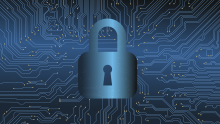Gun Owners’ Private Content Leaked by the Department of Justice
We are pleased to announce that our company will offer 90 days of free online privacy protection for anyone impacted by the recent accidental disclosure of private information by the California Department of Justice (DOJ).
This breach revealed the personal information of individuals who were granted or denied a concealed and carry weapons (CCW) permit between 2011-2021. The information exposed included names, addresses, dates of birth, gender, race, driver’s license numbers, and criminal histories.










